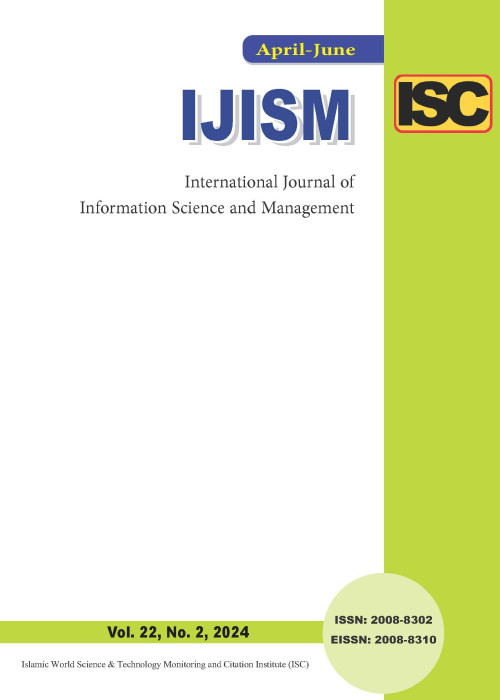Development of Qur'anic Ontologies: A Domain Review Study
Author(s):
Article Type:
Research/Original Article (دارای رتبه معتبر)
Abstract:
This study aimed to identify research on different Qur'anic ontologies by providing a clear picture of the existing reality, activities, and progress in developing Qur'anic ontologies. Therefore, the present scoping review attempts to overview the breadth and scope of the research conducted around Qur'anic ontologies during 2017-2022. The methodological framework of Arksey and O'Malley (2005), who suggested five steps for conducting domain review, was used. The search strategy was conducted in 6 databases, including Emerald, Science Direct, IEEE Xplore Digital Library, Google Scholar, Web of Science, and Scopus, in April 2022. As a result, 811 studies were identified. The EndNote ver. 9 reference management tool was used to organize the studies. Three hundred and seventeen duplicate articles and 362 unrelated articles were excluded. Maximum research has considered specific Qur'anic themes in creating Qur'anic ontologies, even though some studies have tried to construct an ontology of the entire Qur'an. English and Arabic were the most common languages used in developing existing Qur'anic ontologies. In addition, most of the research constructed monolingual thematic ontology, and limited studies have applied multilingual translation of the Qur'an to their ontology. Developing tools, programming languages, and methods used in most studies are Protégé, W3C Web Ontology Language (OWL), and Resource Description Framework (RDF), and the concept classification is the up-down approach. SPARQL Protocol and RDF Query Language (SPARQL) have been the proper evaluation tools and methods used in previous research. In contrast, Description Logic (DL) queries and human experts have only been used in a few studies. This study provided a practical indication of the shortcomings, problems, and suggestions in constructing and developing existing Qur'anic ontologies leading to comprehensive Qur'an ontology to disseminating correct knowledge of the Qur'an with the help of semantic technologies. In this way, creating a comprehensive Qur'anic ontology in Persian is suggested to overcome the limitations raised in previous research.
Keywords:
Language:
English
Published:
International Journal of Information Science and Management, Volume:21 Issue: 3, Summer 2023
Pages:
229 to 241
https://magiran.com/p2588372
دانلود و مطالعه متن این مقاله با یکی از روشهای زیر امکان پذیر است:
اشتراک شخصی
با عضویت و پرداخت آنلاین حق اشتراک یکساله به مبلغ 1,390,000ريال میتوانید 70 عنوان مطلب دانلود کنید!
اشتراک سازمانی
به کتابخانه دانشگاه یا محل کار خود پیشنهاد کنید تا اشتراک سازمانی این پایگاه را برای دسترسی نامحدود همه کاربران به متن مطالب تهیه نمایند!
توجه!
- حق عضویت دریافتی صرف حمایت از نشریات عضو و نگهداری، تکمیل و توسعه مگیران میشود.
- پرداخت حق اشتراک و دانلود مقالات اجازه بازنشر آن در سایر رسانههای چاپی و دیجیتال را به کاربر نمیدهد.
In order to view content subscription is required
Personal subscription
Subscribe magiran.com for 70 € euros via PayPal and download 70 articles during a year.
Organization subscription
Please contact us to subscribe your university or library for unlimited access!


